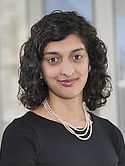Impact of prior CAR T-cell therapy on mosunetuzumab efficacy in patients with relapsed or refractory B-cell lymphomas Journal Article
| Authors: | Chong, E. A.; Penuel, E.; Napier, E. B.; Lundberg, R. K.; Budde, L. E.; Shadman, M.; Matasar, M. J.; Bartlett, N. L.; Flinn, I. W.; Bosch, F.; Fay, K.; Goy, A.; Kumar, A.; Nastoupil, L. J.; Wei, M. C.; Wu, M.; Yin, S.; Fraietta, J. A.; Chong, E. R.; Schuster, S. J. |
| Article Title: | Impact of prior CAR T-cell therapy on mosunetuzumab efficacy in patients with relapsed or refractory B-cell lymphomas |
| Abstract: | Mosunetuzumab and other CD20/CD3 bispecific antibodies (BsAbs) have efficacy in B-cell lymphomas relapsing after or refractory to CD19-directed chimeric antigen receptor (CAR)–modified T cells (CAR-T). The optimal timing of BsAbs and biomarkers of BsAb response after CAR-T are unknown. We addressed these questions using clinical data and blood samples from patients previously treated with CAR-T and subsequently treated on a phase 1/2 study of mosunetuzumab. Thirty patients had paired samples at baseline and after 1 cycle of mosunetuzumab. The median time from CAR-T to mosunetuzumab was significantly longer for responding than for nonresponding patients (P = .006, unadjusted for multiple comparisons). Most patients (20/30) did not receive intervening therapy between CAR-T administration and mosunetuzumab. The remainder of patients received 1 intervening therapy after a protocol-mandated drug washout. After mosunetuzumab, responding patients had higher lymphocytes (995 vs 400 cells per μL; P = .02) and greater increases in CD4 and CD8 cells (median change, 73 vs –90 cells per μL [P = .005] and 243 vs –103 cells per μL [P = .004], respectively). Additionally, responding patients had an increase in activated CD8 cells (median fold change, 1.7; P = .02). Nonresponders had a relative decrease in CAR transgene levels (n = 16; P = .04). This is, to our knowledge, the first study to assess changes in lymphocytes, T cells, and CAR transgene levels in patients treated with BsAbs after CAR-T. These findings suggest an interaction between prior CAR-T and BsAb outcomes and have implications for optimal timing of BsAb after CAR-T. © 2025 American Society of Hematology. |
| Keywords: | adult; clinical article; treatment response; aged; gene translocation; fludarabine; lenalidomide; cancer recurrence; drug efficacy; rituximab; cancer staging; flow cytometry; outcome assessment; carboplatin; protein bcl 2; progression free survival; phase 2 clinical trial; etoposide; bendamustine; cyclophosphamide; ifosfamide; b cell lymphoma; germinal center; fluorescence in situ hybridization; blood sampling; myc protein; transgene; chimeric antigen receptor; real time polymerase chain reaction; protein bcl 6; cd4 lymphocyte count; phase 1 clinical trial; follicular lymphoma; autologous hematopoietic stem cell transplantation; copy number variation; diffuse large b cell lymphoma; refractory cancer; absolute lymphocyte count; ibrutinib; human; male; female; article; copanlisib; pembrolizumab; ecog performance status; tisagenlecleucel t; chimeric antigen receptor t-cell immunotherapy; axicabtagene ciloleucel; lisocabtagene maraleucel; primary mediastinal large b cell lymphoma; mosunetuzumab; cd8 lymphocyte count |
| Journal Title: | Blood Advances |
| Volume: | 9 |
| Issue: | 4 |
| ISSN: | 2473-9529 |
| Publisher: | American Society of Hematology |
| Date Published: | 2025-02-25 |
| Start Page: | 696 |
| End Page: | 703 |
| Language: | English |
| DOI: | 10.1182/bloodadvances.2024013640 |
| PUBMED: | 39571171 |
| PROVIDER: | scopus |
| PMCID: | PMC11869845 |
| DOI/URL: | |
| Notes: | Article -- Source: Scopus |




